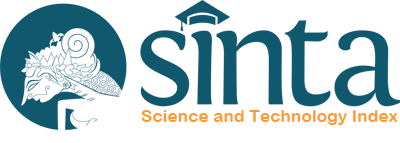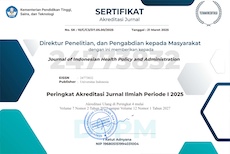Abstract
Compulsory paternity testing at birth has sparked significant legal, ethical, and social debate due to its potential impact on family dynamics, child well-being, and parental responsibility. This review explores the ethical, legal, and societal implications of such testing, using Bioecological Systems Theory and Rawls' Theory of Justice to frame the discussion. This review evaluates the benefits and challenges of mandatory DNA testing at birth, particularly in reducing paternity fraud, ensuring fairness in child support allocation, and enhancing socio-economic outcomes, especially in low-income households. This qualitative review draws on multidisciplinary literature from family law, genetic counseling, social policy, and fathers' rights advocacy. Sources were identified through PubMed, Scopus, and Google Scholar, alongside grey literature such as policy briefs and advocacy reports (e.g., Fathers 4 Justice SA). Search terms included "paternity fraud," "mandatory DNA testing," "child support," and related ethical and legal concepts. The literature reveals paternity fraud is a significant concern, which compulsory DNA testing could help mitigate; however, privacy, parental autonomy, and the social implications of mandatory testing present challenges. The review emphasizes the importance of balancing the benefits of transparency with protecting individual rights, particularly in societies with strong traditional family structures. Compulsory paternity testing could promote fairness and reduce financial exploitation, but its implementation must address ethical concerns, including informed consent and privacy. Policymakers are urged to develop balanced regulatory frameworks that consider both the benefits and the ethical challenges. Special attention should be given to cultural values and protecting children's rights.
References
-
Jonhera C, Nyabadza G, Masimirembwa C, Thelingwani R. DNA Paternity Testing in Zimbabwe - Emerging Paternal Discrepancy Trends and Demographic Patterns. Lwati: A Journal of Contemporary Research. 2021 Apr 21;18(1):163–75.
- Avni C, Sinai D, Blasbalg U, Toren P. Discovering Your Presumed Father is Not Your Biological Father: Psychiatric Ramifications of Independently Uncovered Non-Paternity Events Resulting From Direct-to-Consumer DNA Testing. Psychiatry Res. 2023 May;323.
- Turney K, Carlson MJ. Multipartnered Fertility and Depression Among Fragile Families. Journal of Marriage and Family. 2011 Jun;73(3):570–87.
- Draper H, Ives J. Paternity Testing: a Poor Test of Fatherhood. Journal of Social Welfare and Family Law. 2009 Dec 9;31(4):407–18.
- Bellis MA. Measuring Paternal Discrepancy and Its Public Health Consequences. J Epidemiol Community Health (1978). 2005 Sep 1;59(9):749–54.
- Efut MR, Chiagoziem A. Paternity Fraud: Examining its Causes, Tort of Deceit, and Victims’ Compensation. Global Scientifif Journals. 2021 Dec;9(12):738–47.
- Silva G Da. Father 4 Justice. 2024. Understanding Paternity Fraud in South Africa: Legal Implications and Avenues for Redress.
- Draper H. Paternity Fraud and Compensation for Misattributed Paternity. J Med Ethics. 2007 Aug;33(8):475–80.
- Anderson KG. How Well Does Paternity Confidence Match Actual Paternity? Curr Anthropol. 2006 Jun;47(3):513–20.
- Gilding M. Rampant misattributed paternity: The creation of an urban myth. People Place. 2005;13(2):1–11.
- Okpi A. Africa Check. 2019. No Data Shows 30% of Nigerian Men ‘Not Biological Fathers of Their Children.
- Shepard A, Diamond D, Willard L, Staples J, Martin K, Witherspoon N. Discovering Misattributed Paternity After DNA Testing and its Impact on Psychological Well-Being and Identity Formation. American Journal of Qualitative Research. 2022 Nov 6;6(2):189–211.
- Bronfenbrenner U. The Ecology of Human Development: Experiments by Nature and Design. Harvard University Press; 1979.
- Rawls J. A Theory of Justice. Harvard University Press; 1971.
- Paez A. Gray literature: An Important Resource in Systematic Reviews. J Evid Based Med. 2017 Aug 31;10(3):233–40.
- Farquhar J, Michels N, Robson J. Triangulation in Industrial Qualitative Case Study Research: Widening the Scope. Industrial Marketing Management. 2020 May;87:160–70.
- Fusch P, Fusch GE, Ness LR. Denzin’s Paradigm Shift: Revisiting Triangulation in Qualitative Research. Journal of Social Change. 2018 Jan 1;10(1).
- Anderlik MM, Rothstein MA. DNA-Based Identity Testing and the Future of the Family: A Research Agenda. Am J Law Med. 2002;28(2):215–32.
- Nash DJ. EBSCO. 2024. Paternity Tests.
- Humberstone J. BYU Marriott School of Business. 2007. Single Mothers & Self-Reliance.
- Mabuku KK. Mandatory DNA Testing for Newborns in Namibia: a Complex Personal Security Challenge . Global Scientific Journal. 2023 Oct;11(10):912–25.
- Gayathri G. DNA Testing and Right to Privacy in India. SSRN Electronic Journal. 2021;
- Heidt-Forsythe E, McGowan ML. Whose Right to Know? The Subjectivity of Mothers in Mandatory Paternity Testing. The American Journal of Bioethics. 2013 May;13(5).
- Knoppers BM, Chadwick R. Human Genetic Research: Emerging Trends in Ethics. Nat Rev Genet. 2005 Jan;6(1):75–9.
- Barter H. Barter McKellar. 2023. Paternity Tests in South Africa: Understanding the Legal Framework.
- Maurice Phillips Wisenberg. Family and Divorce Law in South Africa. 2025. Paternity Disputes in South African Law.
- Ghana Republic. Ghana: Act No. 560 of 1998, Children’s Act. National Legislative Bodies; 1998.
- McCrystal P, Manful E. Ghana’s Children’s Act 560: A Rethink of its Implementation? The International Journal of Children’s Rights. 2011;19(2):151–65.
- Lowe G, Pugh J, Kahane G, Corben L, Lewis S, Delatycki M, et al. How Should We Deal With Misattributed Paternity? A Survey of Lay Public Attitudes. AJOB Empir Bioeth. 2017 Oct 2;8(4):234–42.
- Theunissen CA. The Effects of DNA Test Results on Biological and Family Identities. Genealogy. 2022 Feb 17;6(1):17.
- Siegel B. African Family and Kinship. 3rd ed. Anthropology Publications; 1996.
- Bitalo DW, Piotrowski K, Naudé L. Fatherhood, Manhood, and Personhood: South African Fathers’ Experiences of Parental Identity Development. J Fam Stud. 2024 Nov 4;30(6):1106–29.
- Osborne A, Ahinkorah BO. The Paternal Influence on Early Childhood Development in Africa: Implications for Child and Adolescent Mental Health. Child Adolesc Psychiatry Ment Health. 2024 Dec 6;18(1).
- Matsiale MC. Emerging Practice in Soliciting DNA Test, Kinship Values and the Family in Africa: Medical Anthropological Approach. Multidisciplinary International Journal. 2023;9:285–93.
- Nejaime D. The Nature of Parenthood. Yale Law J. 217AD Jun;128(8).
- Miceli MG, Steele JK. Genetic Ties and the Family: The Impact of Paternity Testing on Parents and Children. Journal of Health Ethics. 2008;5(1).
- Alam N. Paternity and Child Welfare. J Forensic Soc Work. 2023 Nov 1;7(2):108–19.
- Salami IA, Okeke CIO. Absent Fathers’ Socio-Economic Status and Perceptions of Fatherhood as Related to Developmental Challenges Faced by Children in South Africa. South African Journal of Childhood Education. 2018 Nov 13;8(1).
- Bourne PA, Lewis P, Griffiths K, Coleman PG, Whitely L, Dennis A, et al. The Perspectives and Practices of Women on Paternity Fraud in Jamaica: Post COVID-19 [Internet]. Vol. 8, International Journal of Humanities & Social Science: Insights & Transformations. 2023. Available from: https://www.eurekajournals.com/humanities.html
- Ha Y, Collins ME, Martino D. Child Care Burden and The Risk of Child Maltreatment Among Low-Income Working Families. Child Youth Serv Rev. 2015 Dec;59:19–27.
- Obalowu IA, Abdul Rahim A. Marital Infidelity and Paternity Dispute in Nigeria: an Islamic Perspective. Al-Hikmah: International Journal of Islamic Studies and Human Sciences. 2022 Aug 31;5(5):1–17.
- Hudson KL, Rothenberg KH, Andrews LB, Kahn MJE, Collins FS. Genetic Discrimination and Health Insurance: An Urgent Need for Reform. Science (1979). 1995 Oct 20;270(5235).
- Grady C. Enduring and Emerging Challenges of Informed Consent. New England Journal of Medicine. 2015 Feb 26;372(9):855–62.
- Daniels N. Just Health: Meeting Health Needs Fairly. Bull World Health Organ. 2008 Aug 1;86(8).
- Ncayiyane Z, Nel L. Young Black Fathers’ Perceptions of Fatherhood: A Family Systems Account. J Fam Issues. 2024 Jun 28;45(6):1431–52.
Bahasa Abstract
Pengujian paternitas wajib saat lahir telah memicu perdebatan hukum, etika, dan sosial yang signifikan karena dampak potensialnya pada dinamika keluarga, kesejahteraan anak, dan tanggung jawab orang tua. Tinjauan ini mengeksplorasi implikasi etika, hukum, dan sosial dari pengujian tersebut, dengan menggunakan Teori Sistem Bioekologi dan Teori Keadilan Rawls untuk membingkai diskusi. Tinjauan ini mengevaluasi manfaat dan tantangan pengujian DNA wajib saat lahir, khususnya dalam mengurangi penipuan paternitas, memastikan keadilan dalam alokasi tunjangan anak, dan meningkatkan hasil sosial ekonomi, terutama di rumah tangga berpenghasilan rendah. Tinjauan kualitatif ini mengacu pada literatur multidisiplin dari hukum keluarga, konseling genetik, kebijakan sosial, dan advokasi hak-hak ayah. Sumber diidentifikasi melalui PubMed, Scopus, dan Google Scholar, di samping literatur abu-abu seperti laporan kebijakan dan laporan advokasi (misalnya, Fathers 4 Justice SA). Istilah pencarian mencakup "penipuan paternitas", "pengujian DNA wajib", "tunjangan anak", dan konsep etika dan hukum terkait. Literatur mengungkap penipuan paternitas merupakan masalah yang signifikan, yang dapat diatasi dengan pengujian DNA wajib, namun, privasi, otonomi orang tua, dan implikasi sosial dari pengujian wajib menghadirkan tantangan. Tinjauan tersebut menekankan pentingnya menyeimbangkan manfaat transparansi dengan perlindungan hak individu, khususnya dalam masyarakat dengan struktur keluarga tradisional yang kuat. Pengujian paternitas wajib dapat mendorong keadilan dan mengurangi eksploitasi finansial, tetapi implementasinya harus mengatasi masalah etika, termasuk persetujuan yang diinformasikan dan privasi. Para pembuat kebijakan didesak untuk mengembangkan kerangka peraturan yang seimbang yang mempertimbangkan manfaat dan tantangan etika. Perhatian khusus harus diberikan pada nilai-nilai budaya dan perlindungan hak-hak anak.
Recommended Citation
Willie, Michael Mncedisi
(2025)
"The Case for Compulsory DNA Testing at Birth to Confirm Paternity: Ethical, Legal, and Social Considerations,"
Journal of Indonesian Health Policy and Administration: Vol. 10:
No.
2, Article 5.
DOI: 10.7454/ihpa.v10i2.1148
Available at:
https://scholarhub.ui.ac.id/ihpa/vol10/iss2/5
Included in
Health Policy Commons, Health Services Administration Commons, Health Services Research Commons











